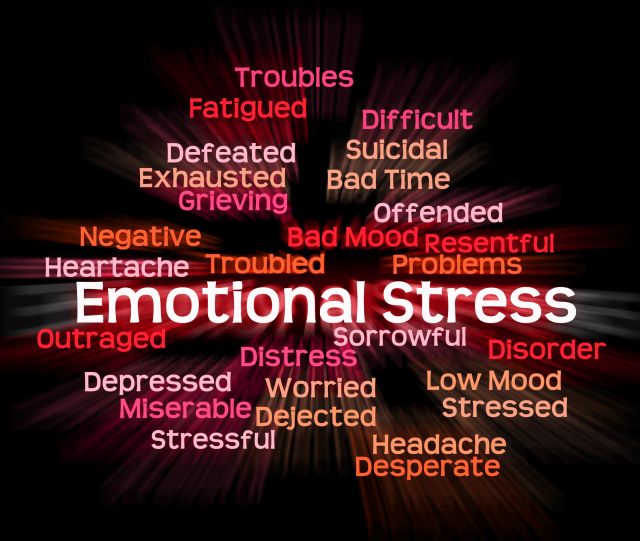
How to reduce stress in 11 ways?
Living in a state of stress is one of the most exhausting state for an individual to go along. It is most exhausting physically as well as emotionally. Our hectic schedules and a number of responsibilities have greatly contributed to this condition and it is important to know the ways that could alleviate stressful conditions.
Chronic stress can take a toll on our relationships, career, and daily functioning, leaving us mentally and physically exhausted and unable to cope with everyday living. Despite the fact that stress has adverse effects on our life, we still deny admitting that this could be a mental disorder. Leading a stressful life hinders our efficiency and lessens our ability to live a healthy and happy life. Being stressed, you may fall sick more often, can feel grumpy and even irritated.
Taking care of your long-term mental and physical health is an important part of stress management. Here are 11 simple and scientifically proven ways to reduce your stress and start enjoying life more today including tips on what to eat and drink, how to breathe, what to listen to, watch and read!
1. Breathe
Slow, deep breathe can help lower blood pressure and heart rate. Try Pranayam yoga, a yogic method that involves breathing through one nostril at a time to relieve anxiety. The technique is supposed to work the same way as acupuncture, balancing the mind and body. Apply this whenever you’re in a stressful situation and you need to slow your mental chatter and relax.
2. Meditation
Meditation is a mean for being mindful. It helps us to mean that you are here, in the present moment, paying attention to what’s going on right now. When we are mindful it helps deal with stress and anxiety. How does this work?
When we are feeling stressed our minds are often racing off into the future thinking about the next thing we have to do, or how we’re never going to be able to accomplish something, or how our boss might not like the job we did on the report that we just turned in.
When our minds are focused on future worries, it is super easy to feel anxious and stressed. How we get that ? A five minutes of peace is all it takes to reap the benefit of meditation. There is a evidence that just two quick bouts of silent meditation per day can relieve stress and depression. Find a comfortable spot in a quiet place, focus on your breath, and feel those anxieties start to disappear.
3. Keep your health a priority.
Get plenty of sleep and begin to exercise when you can. Feeling healthy is a major part of subjective well-being. Try to avoid caffeine and alcohol as solutions to stress as well. Exercise is one of the best stress relief activities. Many of us spend a lot of our day sitting in front of a computer or working in some other situation where we aren’t moving very much. We are working like crazy and our minds might be totally exhausted, but we’re not really working our bodies that much.
One of the best ways to overcome stress is to move your body more.

4. Relax and Give yourself a time.
Relax your mind and body. When felling stresses, take a nap or breathe deep. Being continuously involved in work can be stressful. So, remember to take a break and connect with ‘yourself’. In this way, you will stay calm and make yourself feel better. Give yourself permission to relax and be calm. Self-awareness about our personality and behavior is a major factor in managing stress. If you tend to always be on the go and have trouble relaxing, you might just need to give yourself permission and realize the strictures you place on yourself.
5. Listen to Music.
Listen to music that is soothing and helps to boost your mood. Music changes our physiology, so find music that has a positive impact on you, and dance along for an extra dose of stress reduction. When you come home from work after a stressful day turning on some quiet, relaxing music can help you relieve some of the stress you’ve been through. Even more helpful might be listening to a recording of nature sounds such as a rippling stream.
Bonus points if you are actually making music, say playing the piano or guitar or flute. Playing a musical instrument can lower blood pressure, decrease your heart rate and reduce stress. So tickle those ivories or, if you aren’t an actual musician, that’s O.K., too! Just playing with a child’s xylophone or tambourine to make some impromptu music can short circuit the brain’s stress response.
6. Learn to say “ No”
It can be hard to turn down a new opportunity, but learning to say “no” to extra projects, social engagements, and other activities you don’t have time for makes it possible to live a more balanced life, and really focus on what’s important. Part of the reason we end up feeling so stressed and anxious is that we often have too much on our calendars. If we are running ourselves ragged morning til night is it any surprise that we end up stressed out and burned out? By learning to say no to some things we can really start feeling less stressed and more relaxed so we can enjoy our lives.

7. Don’t Procrastinate.
Procrastination is stressful. Get done today what needs to be done and don’t wait until the last minute. Figure out what’s most urgent and get this task completed. You must believe that tomorrow never comes. Do not leave your work for the next day. Complete your job as soon as possible. Procrastination is bad and stressful and the thought to complete the work tomorrow, never gets accomplished.
8. Drink water.
If you are dehydrated, your cortisol levels (there’s that darn stress hormone again!) are likely to be higher. So on a stressful day be sure you are drinking enough water to stay hydrated. But rather than just gulping down the water, take a minute to really focus on the glass and how it feels in your hand. Notice how the water feels in your mouth and going down your throat. Pay attention to the coolness of the water. Visualize it going into your body and nourishing you.
9. Spend time with friend or talk to friend.
People who believe in you and encourage your dreams can help you make it through tough times. If you’re friends are always discounting your dreams, get new friends. When something’s really bothering you, it can help to share your feelings with a buddy. In fact, more talkative folks tend to be happier in general. So vent to a coworker, friend, or family member.
10. Disconnect your phone and computer.
Take a break from the incessant mental activity of computers and cell phones. Instead take time to meditate, pray, and unwind from always being on the go.
11. Gratitude or helping others.
It has been shown that committing acts of kindness can increase our level of happiness. Gratitude is almost like a magic pill it helps with so many things that bother us. When we focus on feeling grateful our stress levels go down because we are focusing on the good, rather than on the bad. Being able to recognize all the good things in your life, even during really bad times, helps build resilience and that’s a great stress buster.








Comments
https://ciprodelivery.pro/# ciprofloxacin generic price
buy cipro cheap [url=http://ciprodelivery.pro/#]buy ciprofloxacin[/url] cipro
https://ciprodelivery.pro/# where can i buy cipro online
http://clomiddelivery.pro/# can i purchase cheap clomid without insurance
http://clomiddelivery.pro/# where to buy clomid
buy cipro cheap [url=https://ciprodelivery.pro/#]ciprofloxacin 500 mg tablet price[/url] ciprofloxacin over the counter
https://doxycyclinedelivery.pro/# azithromycin doxycycline
https://doxycyclinedelivery.pro/# doxycycline capsule 100mg price
can you buy generic clomid pills [url=https://clomiddelivery.pro/#]clomid[/url] can you buy cheap clomid pill
http://clomiddelivery.pro/# can i purchase generic clomid without rx
https://clomiddelivery.pro/# can you get generic clomid without rx
where can i buy amoxicillin over the counter uk [url=https://amoxildelivery.pro/#]order amoxicillin 500mg[/url] amoxicillin 500 mg price
https://paxloviddelivery.pro/# paxlovid covid
https://doxycyclinedelivery.pro/# doxycycline 40 mg cost
amoxicillin for sale [url=https://amoxildelivery.pro/#]amoxicillin 50 mg tablets[/url] amoxicillin over the counter in canada
http://paxloviddelivery.pro/# paxlovid covid
http://paxloviddelivery.pro/# paxlovid pharmacy
purchase cipro [url=http://ciprodelivery.pro/#]ciprofloxacin order online[/url] ciprofloxacin mail online
http://clomiddelivery.pro/# order generic clomid
https://clomiddelivery.pro/# generic clomid online
http://amoxildelivery.pro/# amoxicillin generic
Paxlovid buy online [url=https://paxloviddelivery.pro/#]paxlovid price[/url] paxlovid generic
mexican drugstore online: mexican pharmacy – mexico pharmacies prescription drugs
https://canadapharmast.online/# canadian discount pharmacy
pharmacy canadian: canadianpharmacymeds com – legitimate canadian online pharmacies
reputable canadian online pharmacies: canadian pharmacy 365 – ed meds online canada
п»їlegitimate online pharmacies india: п»їlegitimate online pharmacies india – pharmacy website india
world pharmacy india [url=http://indiapharmast.com/#]buy medicines online in india[/url] п»їlegitimate online pharmacies india
medication from mexico pharmacy: mexico pharmacies prescription drugs – mexican border pharmacies shipping to usa
http://foruspharma.com/# buying from online mexican pharmacy
best india pharmacy: best india pharmacy – Online medicine home delivery
cheapest online pharmacy india [url=https://indiapharmast.com/#]mail order pharmacy india[/url] top 10 pharmacies in india
canada pharmacy reviews: real canadian pharmacy – canadian pharmacy 365
canada drugstore pharmacy rx: canadian pharmacy com – canadian pharmacy tampa
best canadian pharmacy online: canadian medications – best canadian online pharmacy
https://foruspharma.com/# mexico pharmacies prescription drugs
maple leaf pharmacy in canada [url=https://canadapharmast.online/#]canadian pharmacy ltd[/url] canadian pharmacy meds
canadian pharmacy ed medications: best canadian pharmacy – canadian pharmacies compare
mexico pharmacies prescription drugs
https://cmqpharma.com/# purple pharmacy mexico price list
mexican drugstore online
mexican rx online: online mexican pharmacy – mexico drug stores pharmacies
jtd2xp
x8ibhx
Can you be more specific about the content of your article? After reading it, I still have some doubts. Hope you can help me. https://accounts.binance.com/vi/register-person?ref=V3MG69RO